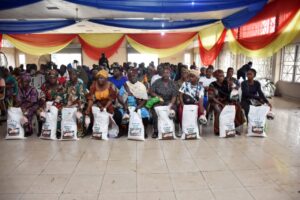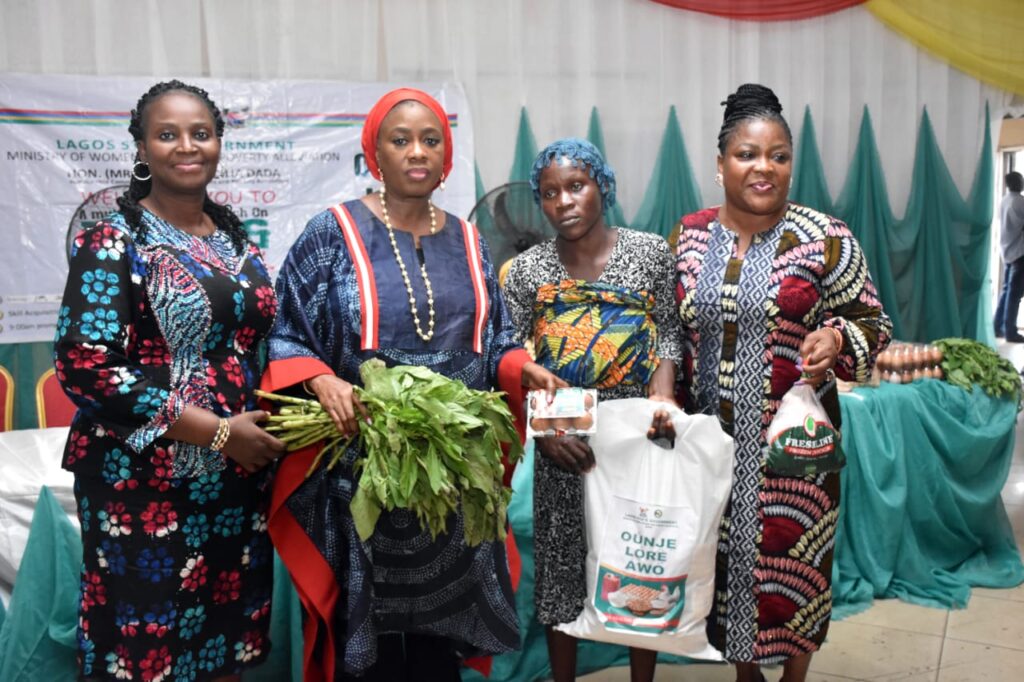WAPA Empowers 250 Women With Nutrition Support, Promotes Healthy Eating
 In a continued effort to improve the wellbeing of women and families, the Lagos State Ministry of Women Affairs and Poverty Alleviation (WAPA) has distributed nutritional food items to 250 women from four local government areas as part of its grassroots health initiative, Ounje l’ore awo.
In a continued effort to improve the wellbeing of women and families, the Lagos State Ministry of Women Affairs and Poverty Alleviation (WAPA) has distributed nutritional food items to 250 women from four local government areas as part of its grassroots health initiative, Ounje l’ore awo.
The programme, held on Thursday, focused on promoting healthy dietary habits and educating women on the importance of nutrition in family health. Speaking at the event, the Commissioner for Women Affairs and Poverty Alleviation, Mrs. Bolaji Dada, urged women to adopt wholesome eating practices to protect their health and that of their households.
READ ALSO: Nigeria Faces Silent Sleep Crisis With Dire Health Implications, Expert Warns
Dada explained that the initiative aligns with Governor Babajide Sanwo-Olu’s broader development agenda, which prioritises healthcare, social protection, and the empowerment of women across the state.
“This effort goes beyond handing out food,” she said. “It is about restoring dignity, promoting wellness, and equipping women with knowledge to make healthier decisions for themselves and their families.”
According to the commissioner, the current phase of the programme focused on vulnerable women in Ikosi-Isheri, Kosofe, Agboyi-Ketu, and Ikeja. Each beneficiary received essential food items, including rice, beans, eggs, chicken, garri, oil, vegetables, and salt.
READ ALSO: After 58 Years, UNILAG Elevates Mass Communication Department to Full Faculty Status
She noted that WAPA’s multi-sectoral strategy not only aims to alleviate poverty but also to prevent nutrition-related illnesses and foster overall wellbeing among women, who are often the primary caregivers in Nigerian households.
“When a woman is nourished, the benefits ripple through the home and the larger community,” Dada emphasised.
Also speaking at the event, Mr. Olusola Malomo, Chief Dietitian at Ajeromi General Hospital, highlighted the role of women—particularly mothers—as frontline agents of change in dietary choices and family health.
Malomo advised that balanced meals rich in fruits, vegetables, fibre, fish, and lean meats can help prevent a range of diseases. He pointed out that amid soaring food prices, it is even more critical to educate mothers on how to make healthy food choices within their means.
“Mothers are the ones preparing meals. By empowering them with the right knowledge, we are helping to build a healthier society,” he said.
WAPA officials confirmed that nutritionists and dietitians were on hand to offer expert guidance during the programme, equipping attendees with both food supplies and lifelong skills for healthy living.
The Ounje l’ore awo programme is part of WAPA’s commitment to enhancing the health and economic status of women across Lagos, especially those in underserved communities.




